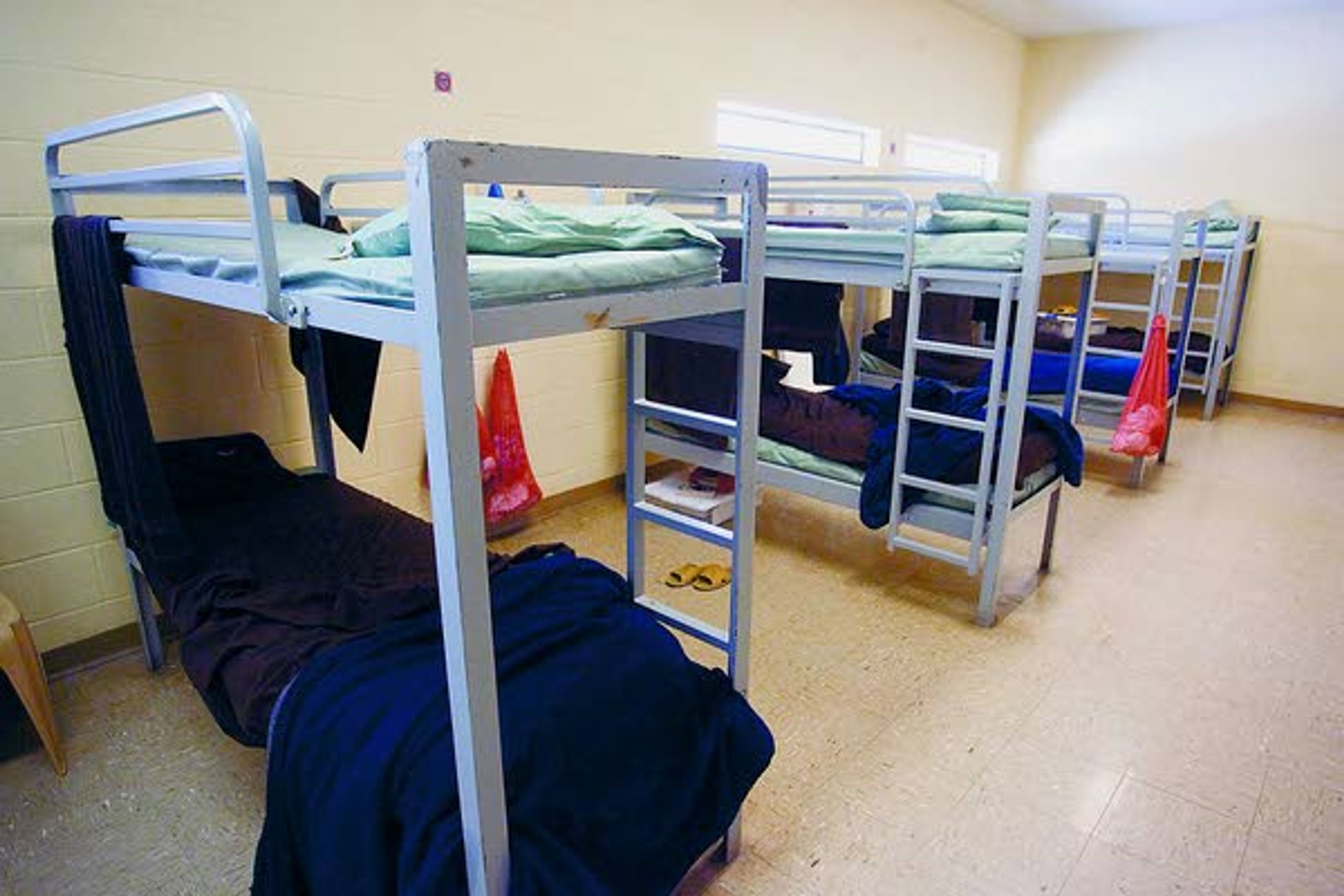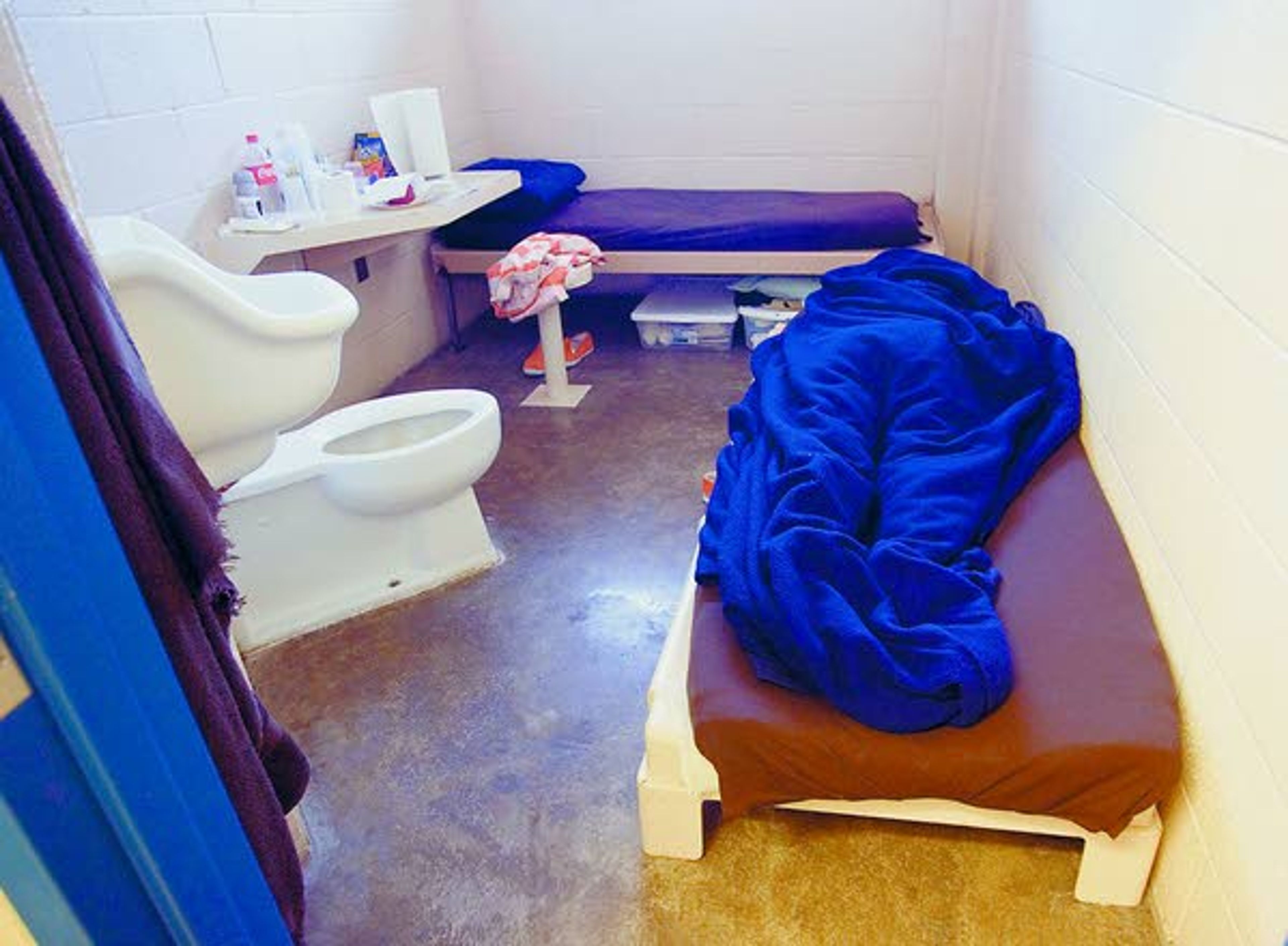Whitman County Jail looks to increase capacity
Whitman County Jail, facing increasing numbers of inmates, looks to increase capacity
The problems with overcrowding at Whitman County's jail aren't unique to the region.
It's a problem facing jails across the country, said Jail Commander Scotty Anderson.
"We've been pretty lucky over the years. There have been many other facilities that have put out messages saying, 'Hey, we're out of capacity, we can't fit anybody else in here.' We've been fortunate for a number of years that our facility has allowed us to hold everybody," he said.
That may not be the case for much longer, however.
The facility, built in 1984, was originally meant to house about 36 people, including juveniles. These days, however, with a $1.1 million annual budget, it regularly houses between 40 and 50 and, on some on busy weekends, as many as 58.
"At that point we're tapping out on beds, we're tapping out our food supply and on the amount of time, the hours that officers have available in the day," Anderson said. "Right now, if the demands by the number of inmates exceed the hours that the officers have to work, then things aren't getting done."
While it's not quite ready to put up a no vacancy sign, the Whitman County Sheriff's Office has been having to get more and more creative with its solutions to the crowding issue.
A contract with the Martin Hall Juvenile Detention Center in Medical Lake, Wash., means the space originally dedicated for juveniles now allows room for an additional six beds, and inmates are regularly shuffled around to different cells in a shell-game fashion in order to avoid housing together inmates who might know each other and don't get along in the "outside world," or who might have been arrested as accomplices and need to be housed separately for investigative purposes.
To alleviate some of the immediate pressure, the sheriff has requested $6,200 from the county to make some slight modifications to the cells. The modifications primarily include addition of bunk space in the existing cells. Doing so would increase occupancy to 64, double the facility's original capacity for adults.
"There's never before been as much demand for beds, while at the same time we have to fight for every dollar we get," said Sheriff Brett Myers. "Under the circumstances I think that really what it comes down to is being creative without breaking the bank."
Myers said the jail's staff has been excellent at finding ways to do more with less, something he said all law enforcement agencies have had to get used to in recent years, but the changing nature of the institution, and the inmates themselves, further complicates the issue.
Two decades ago, he said, 70 to 80 percent of the inmates were being held for misdemeanors, with the other 20 to 30 percent being felonies. Now those numbers are flipped. Inmates are more likely to be housed for long stretches of time, require significantly more medications and need frequent doctor and dental visits.
"More serious crimes, longer stays between the time of initial arrest and their court cases being adjudicated, the fact that there are a lot of repeat offenders," Anderson said, all lead to longer terms for inmates, and that means more crowding during the interim.
While they're able to make do for the time being, Myers said he doesn't believe it will be very long before they have to start considering some more significant changes to accommodate housing needs in the future, and not just in the number of beds available, but to staffing levels as well.
Even when utilizing deputies from off the road to help out with things at the jail, he said, they currently still barely have the staffing needed to get the job done.
"At the point where we start recognizing 60 to 70 (inmates) as something coming down the road, we're not only going to have to start looking at changes to the facility, but at major changes to the staffing level," Myers said.
Bill McKee can be reached at (208) 883-4627, or by email to wmckee@dnews.com.




